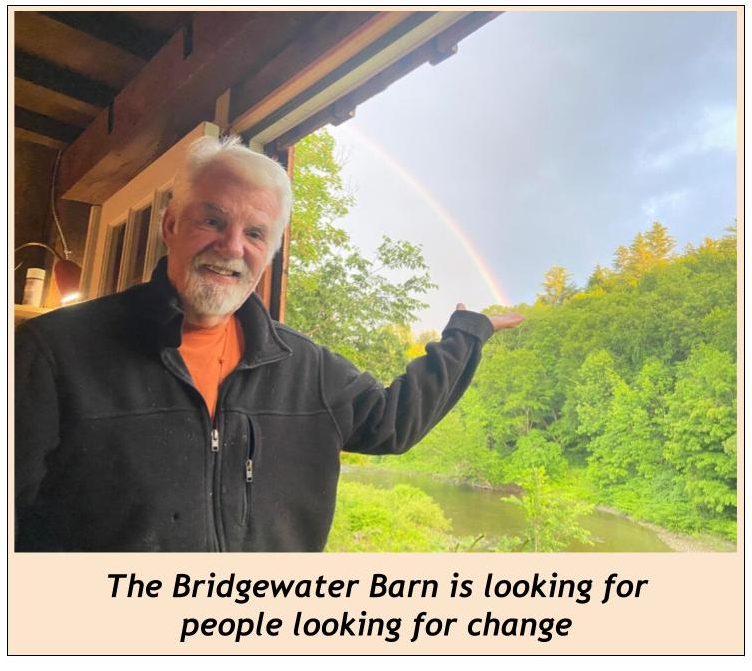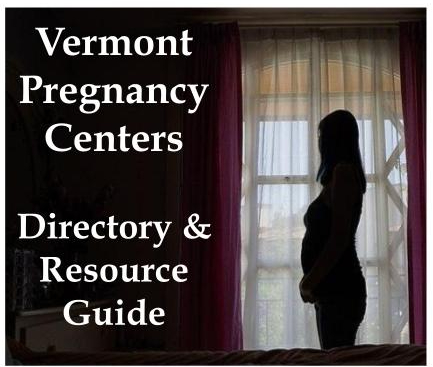By Michael Bielawski
This week lawmakers in the House may vote on retroactive carbon tax, public meetings without a physical location, public meetings without the public altogether, and more. Agendas published weekly on the Legislature’s website are subject to change. The agenda for all the committees can be seen here.

Possible vote on dam safety and land conservation bill – S. 213 (Tuesday, House Committee on Appropriations) Sponsored by Sen. Chris Bray, D-Addison, and others.
This deals with the regulation of wetlands, river corridor development, and dam safety. There may be a vote. Legislative Counsel Michael O’Grady and Legislative Finance Manager O’Scott Moore from the Joint Fiscal Office will be there.
The American Society of Civil Engineers gave Vermont’s network of dams a “C” grade in early 2023 meaning generally “poor” condition.
The state claims that storms are getting worse and it’s up to modifying human activity to deal with it. It states, “According to the 2023 National Climate Assessment, the northeastern region of the United States has experienced a 60 percent increase in more extreme precipitation events since 1958, particularly in inland flooding of valleys, where persons, infrastructure, and agriculture tend to be concentrated.”
Potential vote on retroactive carbon tax – S. 259 (Wednesday, House Committee on Appropriations) Sponsored by Sen. Anne Watson, D-Washington County, and others.
This bill would allow a carbon tax on emissions that occurred in the past, going back more than a decade. It would create a “Climate Super Fund” serving alternative energy projects in the heating, transportation, and energy sectors.
The bill includes a “Climate change adaptation project” meaning “a project designed to respond to, avoid, moderate, repair, or adapt to negative impacts caused by climate change and to assist human and natural communities, households, and businesses in preparing for future climate-change-driven disruptions.”
More cost control over drugs? – S. 98 (Sponsored by Sen. Kesha Ram Hinsdale, D-Chittenden, and others.
This deals with the Green Mountain Care Board’s authority over prescription drug costs. There may be a vote.
It would “authorize and direct the Green Mountain Care Board to evaluate the costs of certain high-cost prescription drugs and recommend methods for addressing those costs, including setting limits on what Vermonters would be expected to pay for some high-cost drugs. The bill would also require the Board to submit a report on generic drugs and generic drug prices.”
Meeting the new education secretary (Wednesday, House Committee on Commerce and Economic Development)
Zoie Saunders, the state’s new Education Secretary, will speak with lawmakers in the committee. She has a lot of experience in the charter school sector. She comes into a situation where school budgets are expected to rise by around 20% and students’ test scores in math and reading are subpar.
She wrote in a letter when she started, “Like many other states, Vermont faces challenges – some of which were exacerbated by the pandemic and others that are compounded by national and regional economic challenges.”
No more cell phone use during school? – S. 284 (Thursday, House Committee on Education) Sponsored by Sen. Terry Williams, R-Rutland, and others.
This bill would require the new Secretary of Education to develop a model student-use-of-cellphones policy that could help schools “prohibit the use of personal digital products and social media in public schools, independent schools, career and technical centers, and prequalified private prekindergarten programs, as well as to require the adoption of policies that would allow students to opt out of the use of electronic devices and online products, with schools required to provide alternative instruction methods.”
Some other language suggests there can be specific times or instances when limited cell phone use may be permitted. It states, “the specific circumstances or time periods during which students are permitted to use cell phones or personal electronic devices, which shall include use of such devices for approved academic purposes.”
Collective bargaining rights – S. 102 (Tuesday, House Committee on General and Housing) Sponsored by Sen. Kesha Ram Hinsdale, D-Chittenden, and others.
This bill would “establish a good cause standard for termination of employment, require employers to provide severance pay to terminated employees, and permit employees or representative organizations to bring an enforcement action on behalf of the State for violations of the good cause termination requirement.”
The bill also has a section dealing with the rights of employees to speak freely on political matters. It “proposes to prohibit employers from taking adverse employment actions against an employee in relation to the employee’s exercise of free speech rights.”
Vote on public meetings without a location? – S. 55 (Tuesday, House Committee on Government Operations and Military Affairs) Sponsored by Sen. Alison Clarkson, D-Windsor, and others.
This bill would allow public bodies to meet without a physical location. Ted Brady, the Executive Director for the Vermont League of Cities and Towns, and four other public service leaders will speak.
According to its language, in some scenarios, there may be a physical location provided for the public to access the meeting but members of the board in question would not be required to physically be there.
It states, “If a quorum or more of the members of a public body attend a meeting without being physically present at a designated meeting location, the agenda required under subsection (d) of this section shall designate at least one physical location where a member of the public can attend and participate in the meeting.”
Public meetings without the public? – H. 649 (Wednesday, House Committee on Government Operations and Military Affairs)
The bill deals with the Vermont Truth and Reconciliation Commission. There is a proposal for amendment to be reviewed. It would allow “certain exemptions from the Open Meeting Law for meetings of the Commission and to permit commissioners to confer with each other.”
Language also includes that those who testify to influence public policy could have their identities and even any recordings kept from public scrutiny.
It states, “Commission shall permit any individual who is interviewed by the Commission to elect to have their the individual’s interview conducted in a manner that protects the individual’s privacy and to have any recording of the interview kept confidential by the Commission.”
Who picks the library books? S. 220 (Thursday, House Committee on Government Operations and Military Affairs) Sponsored by Sen. Ruth Hardy, D-Addison, and others.
Among other initiatives, this bill would prevent parental access to “library records for library users over 12 years of age.”
Other language in the bill suggests it is to protect the 1st Amendment. It states, “To ensure that Vermont libraries protect and promote the principles of free speech, inquiry, discovery, and public accommodation, it is necessary that the trustees, managers, or directors of free public libraries adopt policies that comply with the First Amendment to the U.S. Constitution and State and federal civil rights and anti-discrimination laws.”
Bird flu in cows? (Thursday, House Committee on Agriculture, Food Resiliency, and Forestry)
Dr. Kristin Haas, the State Veterinarian for the Agency of Agriculture, Food and Markets as well as Kaitlynn Levine who is the Assistant State Veterinarian, will speak.
An AP report from Friday out of Texas indicates that dairy cows have tested positive for bird flu according to U.S. officials. A week earlier there were reports out of Minnesota that the virus showed up in some sheep.
The author is a writer for the Vermont Daily Chronicle
Categories: Uncategorized








united state constitution//// no expostfacto laws/// these crooks need to go to jail for extortion/// will they make a law for something you did legal twenty years ago and make you pay back payments
Re: “Potential vote on retroactive carbon tax – S. 259”
Have you heard about the Hummingbird Films ‘Regenerating Life’ documentary?
Consider this recent event.
“Join LEAG (Living Earth Action Group) and speaker Judith Schwartz for Part 2 of John Feldman’s 2023 documentary film Regenerating Life; learn how the most important greenhouse gas is water, not carbon dioxide, and that it is the water cycle that regulates the temperature of the planet.”
The question I’ve started asking locally, without having received any responses to date, is; if CO2 is not the boogeyman it’s made out to be, and, when in fact, CO2 is deemed beneficial to plant growth, why promote draconian clean heat, EV, and other various energy policy standards (like S. 259) that punish Vermonters on a false pretense?
Could it be that our legislators are interested only in tax revenue?
Say it ain’t so.
Does anyone really believe that Ann Watson devised that plan all on her own? How can Vermont voters be so determined to vote for people who have no idea what they are doing? It must fall to the category of the blind leading the blind.
When an ideological cult such as democrats who have been hijacked by progressives continue to vote for policies that destroy everything good about Vermont, it has to be a cult, ignorance, stupidity or a combination of all three. Vermont appears to be full of liberals who are the blindest of the blind which leads to the realism that, none are so blind as those who refuse to see!
An $8.6 Billion budget for a population of 640,000 people is insane and just proves that money doesn’t fix the problems, it just destroys the lives of people who can’t afford all the craziness coming from this liberal cult under the golden doom in Mount Stupid. $8,600,000,000.00 is Eight thousand, six hundred million dollars and according to Ann, it’s not quite enough to run Vermont.
The bill is a VPIRG initiative.
My bet is the “climate superfund” is front-running the lawsuits they anticipate due to their belligerence of cementing a deadline into their lawfare warfare. Another reason could be the bond scheme between Canada and the USA. Allegedly, the carbon taxes in Canada are being funnelled to the USA to pay on a large debt bond to be paid in full 2029? Allegedly, the increase taxation on all fronts is to keep the Western ponzi bond scheme going. The participating countries have papered themselves into insolvent, insurmountable debt. Mexico and Germany looking to join BRICS? The trade deals are freezing out the Western nations. Hence, never-ending distractions and lawfare warfare to hide the Truth of what they have done.